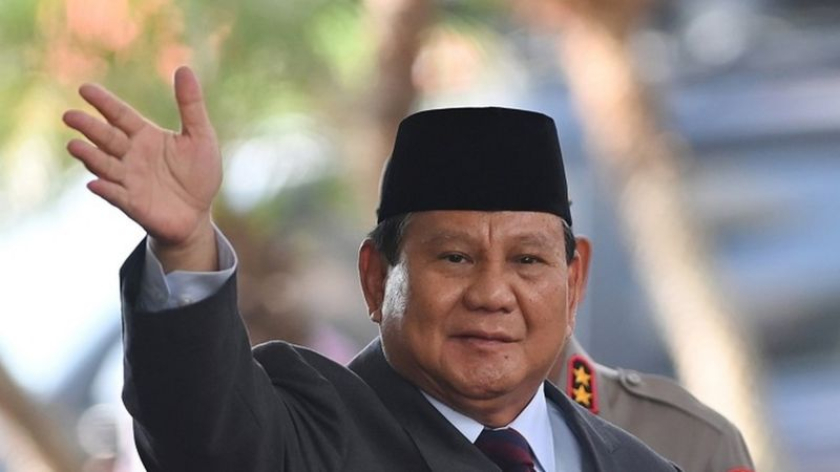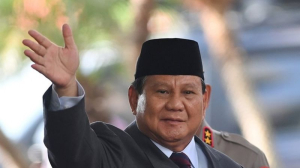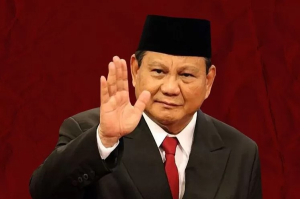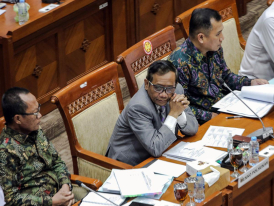Prabowo pushes for BPN to boost tax ratio, experts concerned on feasibility

130810589_antarafoto-menhan-prabowo-tiba-di-sidang-tahunan-mpr-160823-app-3
President Prabowo Subianto has prioritized the establishment of the State Revenue Agency (BPN) in the 2025-2029 National Medium-Term Development Plan (RPJMN), which is regulated in Presidential Regulation (Perpres) No. 12/2025 which has been in effect since February 10, 2025.
According to the Presidential Regulation, the BPN was established as an effort to increase the ratio of state revenue to gross domestic product (GDP) to 23 percent.
The government, on the other hand, has set a target for the state revenue ratio in 2029 of 13.75-18 percent of GDP and a target for the tax revenue ratio in 2029 of 11.52-15 percent according to the Presidential Regulation.
Factors of success
Yusuf Rendy Manilet, an economist at the Center of Reform on Economic (CORE) Indonesia, assessed that the success of this target depends on several things.
"The effectiveness of BPN in increasing the state revenue ratio to 23 percent is highly dependent on a number of factors that not only concern the formation of new institutions, but also the quality of leadership," Yusuf said as quoted by Katadata.co.id, on Friday, February 28, 2025.
He said the target depends on the formulation of mature policies from the government. In addition, broad support from government agencies and the community is also needed so that BPN can be maximized.
"Although the idea of establishing BPN has the potential to increase tax revenues and other sources of income, its success does not happen automatically," Yusuf noted.
He emphasized that the agency must be able to address the problems of tax evasion and inefficient administration. It must also be able to introduce new revenue measures that are in reality easier said than done.
"Especially considering that currently Indonesia's tax ratio to GDP is still around 10 percent," Yusuf said.
Yusuf considered the move to be ambitious in the context of the establishment of the BPN as stated in the RPJMN. This move also raises big questions about its feasibility and implementation.
"Because the RPJMN is a five-year plan that requires a process of bureaucratic restructuring, resource allocation, and even possible changes to the law," he said.
He considered the expectation that revenue would more than double in a short time to be too optimistic. Moreover, the Ministry of Finance also faces significant challenges in excluding the Directorate General of Taxes (DJP) and putting it into BPN.
"Institutional resistance is the main obstacle considering that the Directorate General of Taxes has long been under the auspices of the Ministry of Finance, so the separation has the potential to disrupt the power structure and work flow," Yusuf said.
Alternative policies
Nailul Huda, an economist at the Center of Economic and Law Studies (CELIOS) assessed that the presence of BPN will not help much in increasing state revenue. The policy is not essential in increasing state revenue.
"Especially if we look at it, there are still many internal homework assignments of the Directorate General of Taxes and the Directorate General of Customs and Excise that need to be fixed without having to form a new agency," said Huda.
He said there are other options if the government wants to increase the tax ratio besides forming the BPN. First, the government can pursue taxes in the mining sector which still has very minimum contribution to tax revenue.
While the second step, pursuing taxes for individuals because their contribution is still below 1 percent. This can be implemented through wealth tax which can improve Indonesia's tax performance.
Tag
Already have an account? Sign In
-
Start reading
Freemium
-
Monthly Subscription
20% OFF$29.75
$37.19/MonthCancel anytime
This offer is open to all new subscribers!
Subscribe now -
Yearly Subscription
33% OFF$228.13
$340.5/YearCancel anytime
This offer is open to all new subscribers!
Subscribe now







